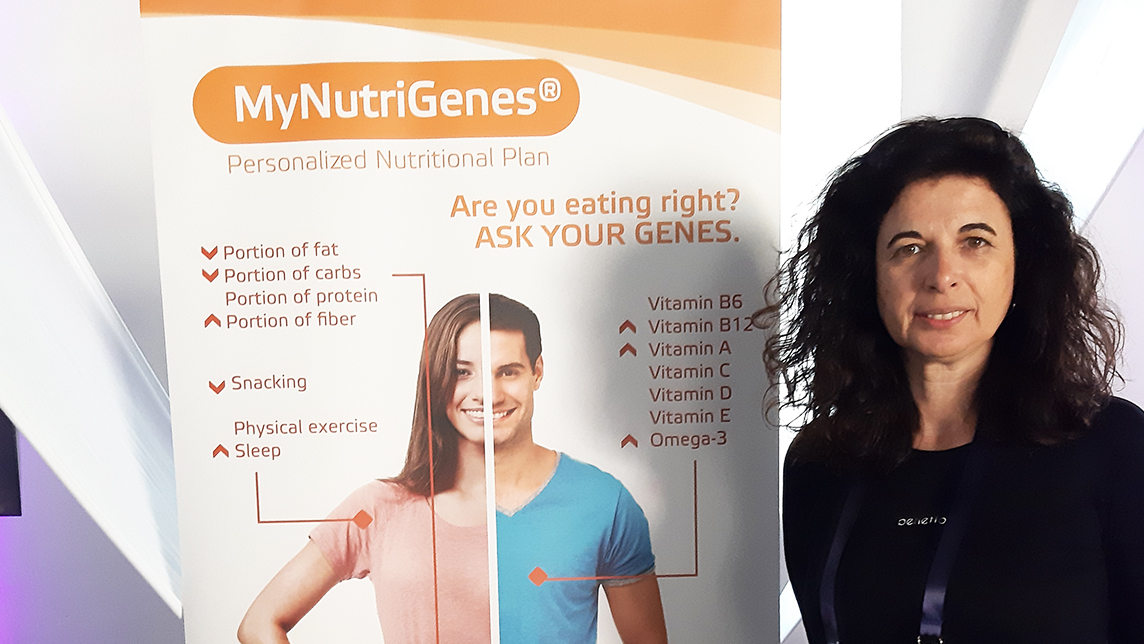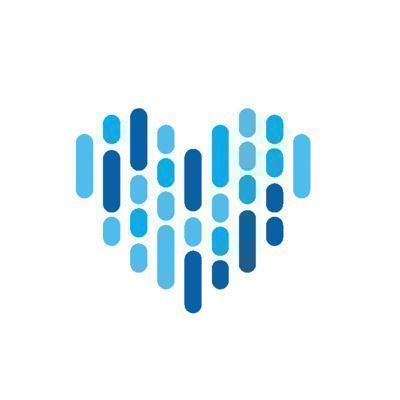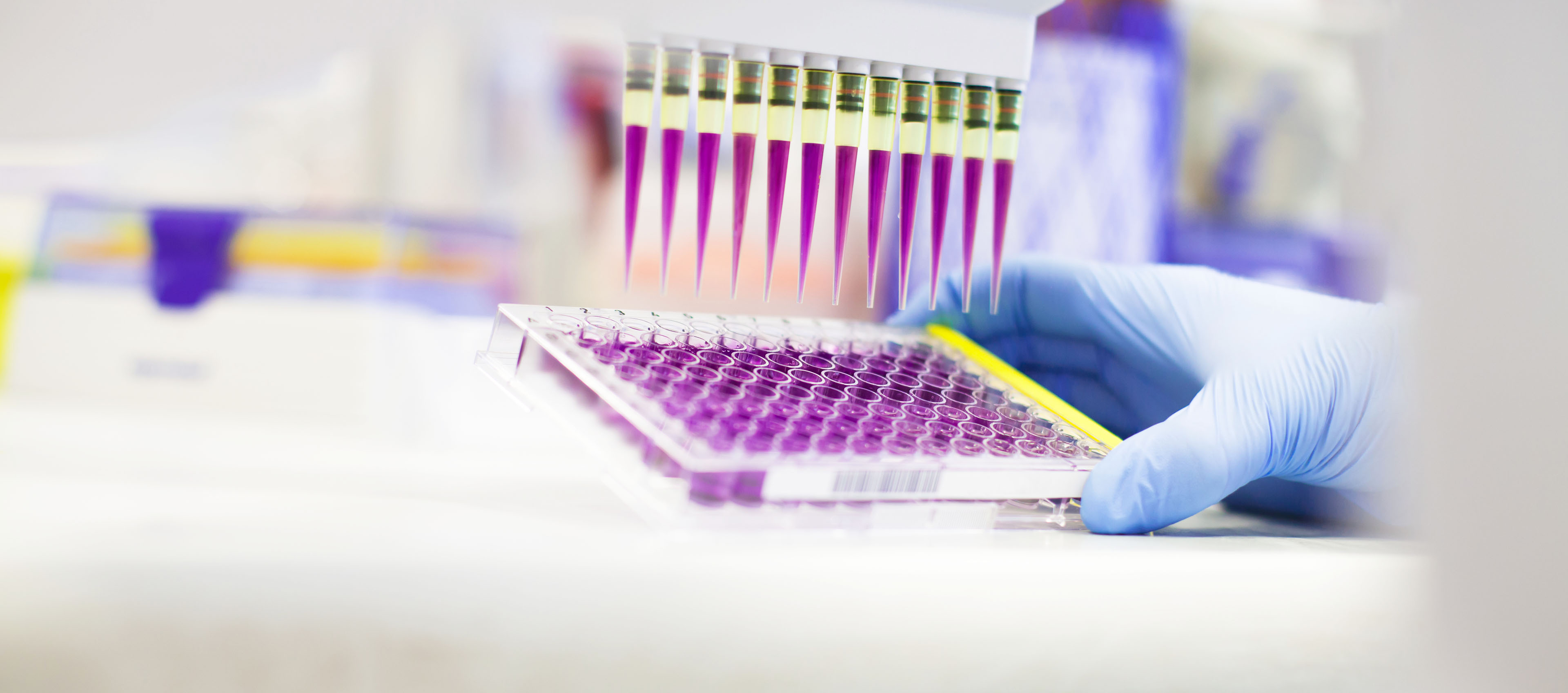Former university professor Ana Teresa Freitas had always wanted to create a product useful for people's health and well-being. In 2013, she founded HeartGenetics, swopping a near 30-year-long career in scientific research with financial stability for the uncertainty and stress of launching and growing a startup.
“I always felt that I was an engineer and not so much a scientist, so I wanted to build a product and for it to have an impact on society,” she told CompassList at the recent Lisbon Investment Summit.
Freitas founded HeartGenetics, which provides genetic testing services for personalized health solutions via clinics, shortly after she realized that she had enough knowledge to transform genetic data into information that could help improve one's daily well-being.
Genetic testing entails two different technologies: genotyping, where a small fraction of an individual's genome is analyzed, at a far lower cost and time scale than the other technology, genetic sequencing, where the full genome is examined. HeartGenetics chose to focus on genotyping.
“You can use genotyping to understand a large number of pathologies and characteristics of a person, mainly those that will not change when you are aging,” said Freitas, who is also the CEO of the company.
Genetic testing is becoming popular among the general public, with a market that is expected to grow at a CAGR of more than 11% to a forecast US$18bn by 2026 from 2019. The market is divided into several areas, three of which HeartGenetics has chosen to focus on, as those are suited to genotyping and, according to Freitas, can guarantee “more than 99% accuracy" in results.
Already present in its native Portugal, Spain and Brazil, HeartGenetics is seeking to raise €2m to expand to the German and UK markets with a dedicated sales team. The startup has secured about €3.5m of funding to date and performed more than 14,000 analyses.
Core B2B model
With 29 years of experience in computer science and computational biology at Lisbon University's prestigious Instituto Superior Técnico (IST), Freitas was already armed with her two-pronged approach when she formed HeartGenetics.
“We use affordable genetic tests using genotyping combined with our own software to produce a report that will be of use to a medical doctor or another professional,” she said. "Our algorithms are able to model the biological impact of groups of genes and transform that impact into a score that makes it very simple to understand the importance of a specific genetic predisposition."
HeartGenetics currently focuses on wellness genetics, pharmacogenetics and cardiovascular analysis. Its services may be engaged directly by customers who already have their genetic data, for example from a DNA or ancestry test, for €50. The company also offers face-to-face consultations, genetic testing and analysis for its wellness program for €226 per person, with results available in 10 days. Clients outside Portugal can approach one of the company's external partners, who will perform the genetic testing and send the results to HeartGenetics for analysis.
Cardiovascular analysis ascertains the risk of developing different cardiovascular pathologies such as Hypertrophic Cardiomyopathy (HCM) or Thrombophilia, and is offered only through HeartGenetics' partner medical practitioners and clinics. Pharmacogenetics determines a person's genetic reaction to certain drugs in order to predict optimum dosage and possible side-effects. Wellness genetics uses genetic data to produce optimum nutrition plans and physical exercise programs.
HeartGenetics chose a B2B model because in Portugal, patients cannot be approached directly; so it needed to partner with medical doctors.
"Genetics is a topic that people still do not know much about, so they need professional advice from qualified B2Bs like clinics. We also don't want our product to be misleading and want people to be satisfied with the results," Freitas said.
From a business point of view, a B2B model meant that HeartGenetics does not have to deploy a sales team. "By using B2B partnerships we can scale more rapidly,” she added.
Overcoming mindsets and barriers
Genotyping, said Freitas, is not a good technology for cancer prediction because the variants in the genome change over time, but for the other three areas, “the information we can give you will be the same when you are born or when you are an adult.”
HeartGenetics is backed by local VC Armilar Venture Partners, which invested €1m right after the company's founding in 2013. This somewhat unusual start – leapfrogging small-ticket funding rounds – was because of the nature of the business. “We started in this ecosystem not in an accelerator or incubator because we needed a lab from day one and had to raise more than €1m. So we had to go to a VC from the outset and the angel investors only came later,” said Freitas.
The company soon moved its lab to Portugal's main biotechnology infrastructure, Biolab, close to the city of Coimbra, while the IT team and management remained at the University of Lisbon. Also, as a result of Freitas's 18 years' research in cardiovascular genetics, the company already had some genetic tests that were ready to go to market. But first, the company had to find a further €2.5m to fund the development of its report analysis technology, and to sustain its operations while the team toiled to obtain European Union certification for its facilities as a genetics medical lab.
Freitas approached more than 200 VCs around the world, as well as Armilar, which went on to participate in HeartGenetics' second round of financing. But winning over foreign backers proved to be a hurdle she couldn't clear.
"The response was always the same. They [foreign investors] always had doubts about a diagnosis company in Portugal, which experiences organic, not really fast growth, and we could not change this mindset,” Freitas recalled.
Fortunately, local angel investors stepped in. HeartGenetics also received €1m in innovation grantsfrom the Portuguese government, principally through Portugal 2020. All in all, it took the company three and a half years to achieve the EU's medical device designation (CE-IVD) for further genetic tests and analytical software, while the lab certification took five years.
Fast-growing predictive wellness market
HeartGenetics has also built a parallel B2B2C channel to work directly with clients in the area of wellness genetics through partnerships with nutritionists and wellness practitioners in Portugal, as well as soccer and other sports teams.
"Our main source of revenue does not come from medical diagnosis, but from the wellness field. It is a different kind of genetics; it is not about disease, but how to lose weight or eat better to live longer," Freitas said.
Wellness genetics is also the company's fastest-growing business, mirroring global market trends. "Wellness genetics is the market segment that is growing the most, with a current market value of €4.2bn and 20% annual growth,” Freitas said.
Brazil is its best-performing market in this segment, Freitas said. “It is not unusual for a normal person [in Brazil] to have a nutritionist while in Europe it is still considered an upscale service."
The company's in-house wellness program in Portugal, DNA Coach, provides personalized guidelines on nutrition (MyNutriGenes) or physical exercise (MyFitnessGenes) based on genetic tests and consultations.
MyNutriGenes delivers a personalized nutritional guide with a focus on weight loss and long-term results based on an analysis of 95 genetic variants. MyFitnessGenes analyses 43 genetic variants to determine how the body responds to each person's athletic capacity, including power and endurance, muscle building ability and predisposition to injury, enabling accurate and targeted training programs and goals.
Software licensing
In an area of increasing competition, particularly from the UK, where genetic products can be marketed directly to consumers, external recognition is critical.
In 2015, HeartGenetics was selected as one of the top 10 startups at the World Health Summit in Berlin. The following year, the company was a finalist for the pan-EU innovation initiative EIT Health Innostars GoEurope award. Its first US exposure followed soon afterwards as a finalist at the Health 2.0 conference in Silicon Valley, where it was the only European company invited to pitch.
Freitas cites the company's other competitive advantages. Its reports, she said, are “more knowledgeable and less expensive than others with computational models... with data displayed in a way that is very simple to understand.”
Freitas is confident of breaking even in 2019 and achieving €2m in sales in less than two years.
"In our business plan we will grow from two different sources of revenue,” she said. “Not only bringing the samples to Portugal to perform the tests but also partnering with labs that already offer genetic tests in their own labs. We are licensing our software and I believe that will be our main source of revenue."













